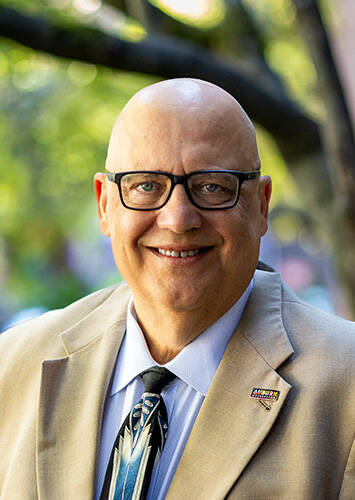For months, Auburn’s Deputy Mayor Larry Brown has been battling an unspecified medical issue that has kept him from attending city meetings.
City communications manager Jason Glover said Tuesday (Oct. 8) the city would not comment on what’s ailing Brown, or how long he will be out. But what happens if and when Brown does return was very much a topic of discussion at Monday’s Auburn City Council meeting.
Timely, too, as council has been grappling with revamping its rules and procedures, and on Monday approved several changes.. One rule says a councilmember may be removed from office following three unexcused absences, but all of Brown’s absences have been excused before the meetings began.
Discussion at one point centered on a particular qualification for serving in a position that at present requires its holder, as a fill-in for the mayor when he or she is out of town, to possess a Certificate of Municipal Leadership (CML).
Here’s what state law says, and what Auburn follows:
Biennially at the first meeting of a new council, or periodically, “the members thereof, by majority vote, may designate one of their number as mayor pro tempore or deputy mayor for such period as the council may specify, to serve in the absence or temporary disability of the mayor.
“Or, in lieu thereof, the council may, as the need may arise, appoint any qualified person to serve as mayor pro tempore in the absence or temporary disability of the mayor. In the event of the extended excused absence or disability of a councilmember, the remaining members by majority vote may appoint a councilmember pro tempore to serve during the absence or disability.”
The sticking point is that Brown does not have a CML at the moment, and it’s unclear what the lack of one would have on his capacity to continue to serve in the deputy mayor position upon his return.
Councilmember Hanan Amer said the effect of the requirement would be to turn away people who would otherwise meet all other requirements — for example, having lived in the city for a year prior to serving on the council, and by extension his or her appointment by fellow council peers to position of deputy mayor.
Amer said Brown is highly qualified to serve as deputy mayor, and wanted the rule amended to make the CML no longer a requirement but an option — or, in the phrasing of Auburn City Attorney Jason Whelan, “a suggestion.”
Councilmembers Kate Baldwin and Yolanda Trout-Manuel argued that anyone who aspires to fill the position should have evidence of a certain degree of expertise, and that asking such a person to invest time in obtaining the CML is not asking too much.
Whelan said ultimately it would be left to councilmembers to decide whether Brown could continue to serve as the city’s deputy mayor.
Amer’s motion to change the language requiring a CML failed by a vote of two in favor and four against. As of this week, council has not appointed anyone to serve during Brown’s absence, although Trout-Manuel is filling in temporarily.



